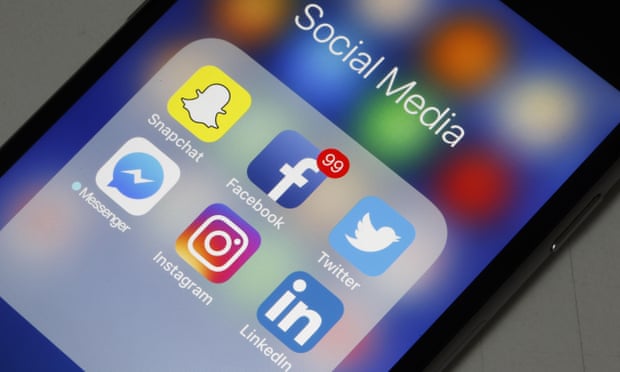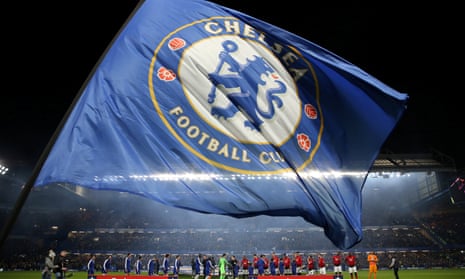Chelsea have been banned from the transfer market for two windows after Fifa found them guilty of a serious and systemic breach of the rules regarding their dealings with overseas players under the age of 18. The club swiftly said they would appeal.
The governing body announced the sanction on Friday at the end of a lengthy investigation into Chelsea and how they have registered players at their academy over a number of years.
The Guardian revealed last month that Fifa had looked into more than 100 player cases at Chelsea and it emerged on Friday they had charged them with 92 breaches of article 19 alone – the most serious infringement relating to the registration of minors. Chelsea were found guilty in 29 of those cases.
The club were also found to have broken other rules, including article 18bis, which concerns third-party influence. Fifa said that Chelsea were guilty “in connection with two agreements it concluded concerning minors and which allowed it to influence other clubs in transfer-related matters”.
Chelsea have been fined 600,000 Swiss francs (£460,000) and given 90 days to “regularise the situation of the minor players concerned”, which could involve them being forced to move on anyone brought to the club in contravention of the regulations.
“Chelsea FC categorically refutes [sic] the findings of the Fifa disciplinary committee and will therefore be appealing the decision,” the club said. “Initially, Chelsea FC was charged under Articles 19.1 and 19.3 in relation to 92 players. We welcome the fact that Fifa has accepted that there was no breach in relation to 63 of these players, but the club is extremely disappointed that Fifa has not accepted the club’s submissions in relation to the remaining 29 players. Chelsea FC acted in accordance with the relevant regulations.”
Chelsea ultimately have the right to appeal to the court of arbitration for sport (Cas). It is possible they could delay their punishment until after this summer’s window via appeals, which can be time-consuming, meaning they would be free to make signings between the beginning of June and the end of August.
Fifa has also sanctioned the Football Association for breaching the rules in connection with minors, because player registrations are processed at FA level, imposing a fine of 510,000 Swiss francs (£391,000). Fifa said in its statement that it was allowing the FA “a period of six months to address the situation concerning the international transfer and first registration of minors in football”.
Quick GuideChelsea's transfer ban
Show
What happens next? Chelsea protest their innocence and have taken to Fifa’s appeals committee. It is not clear whether they will submit new evidence or simply ask the committee to re-examine information already provided. In the event of Fifa’s appeal committee upholding the ban, Chelsea could file a further appeal with the court of arbitration for sport.
Will Chelsea definitely be banned from the summer transfer window? No. Any ban would take effect only upon completion of the appeal process, which has taken a long time before – although Fifa are expecting to consider Chelsea's appeal before the summer window opens. Chelsea may still be free to sign new players this summer, but their bargaining position would be weakened.
What were the outcomes of similar appeals? In 2014, Barcelona signed Luis Suárez, Ivan Rakitic and Marc-André ter Stegen while awaiting the outcome of an appeal against a similar ban, which was eventually upheld by Cas, leaving the Catalan club unable to buy players during 2015. The following year Real Madrid got a ban reduced by Cas to one transfer window. In 2017, Atlético Madrid’s two-window ban was confirmed by Cas. Chelsea have previously appealed successfully against a Fifa ban when, in 2009, Cas ruled that they were not guilty of wrongdoing when bringing Gaël Kakuta from Rennes.
What does this mean for Chelsea’s current squad? If players such as Eden Hazard and Callum Hudson-Odi wish to leave this summer, they may find the exit blocked if the club is not allowed to sign new players. That, however, would allow them to leave for free the following summer when their contracts, like those of Willian and Pedro, expire. Players currently on loan at other clubs, such as Dujon Sterling, Mason Mount and Tammy Abraham, could find more opportunities at Stamford Bridge.
Are any other Premier League likely to face similar punishment? Fifa is investigating four Premier League clubs. Only Manchester City have been publicly identified.
That is understood to centre on procedural issues over when a trialist is obliged to be registered by the local governing body. The FA, which believes Fifa’s regulations are nuanced, said it intended to appeal and had “raised some concerns with Fifa regarding its disciplinary processes”.
The transfer ban is a body blow for Chelsea at a time when the manager, Maurizio Sarri, is clinging to his job and the squad is in need of a makeover with doubts concerning the future of a host of players.
Fifa’s basic rule is that clubs cannot bring in players under 18 from other countries, unless their parents have emigrated for reasons not connected to football or both the player and club are based within 50km of a national border. Under article 19, the only other exception is for transfers within either the European Union or European Economic Area where the player is aged between 16 and 18.
Chelsea contended that the majority of the cases involved short-term trialists at their academy, who did not go on to sign. They argued there is no law against trying out under-18 international players; that it is common practice across Europe and, as such, they believed these cases ought not to have been included in the final judgment. In others that led to them making signings, the club maintained they fully complied with Fifa’s rules.
Fifa came to the conclusion Chelsea gravely overstepped the mark. The governing body has in the past brought successful prosecutions against Barcelona, Real Madrid and Atlético Madrid for infringements related to the signing of minors, and its pursuit of these cases springs from a determination to help protect children from potential exploitation and trafficking.
Each of the Spanish clubs was given a two-window ban, although Real served only one after an appeal to Cas. Once Fifa’s disciplinary committee decided that Chelsea were guilty, it was no surprise that it chose to ban them for two windows.
Fifa has established a principle which says a systemic breach of the rules should entail a transfer embargo, irrespective of the number of minors involved. In other words, if it can see a pattern of wrong-doing, of repeat behaviour, it will look to impose a ban. Furthermore, it is understood that Fifa worries a one-window suspension does not create harmful consequences, and can be worked around with sufficient planning.
Chelsea completed the £58m signing of Christian Pulisic from Borussia Dortmund last month – he will join in the summer – and they took Gonzalo Higuaín on loan from Juventus until the end of the season, with options to extend the loan or sign him permanently this summer. The club have denied that the moves were in reaction to the threat of a transfer ban.
Quick GuideFollow Guardian sport on social media
Show

Twitter: follow us at @guardian_sport
Facebook: like our football and sport pages
Instagram: our favourite photos, films and stories
